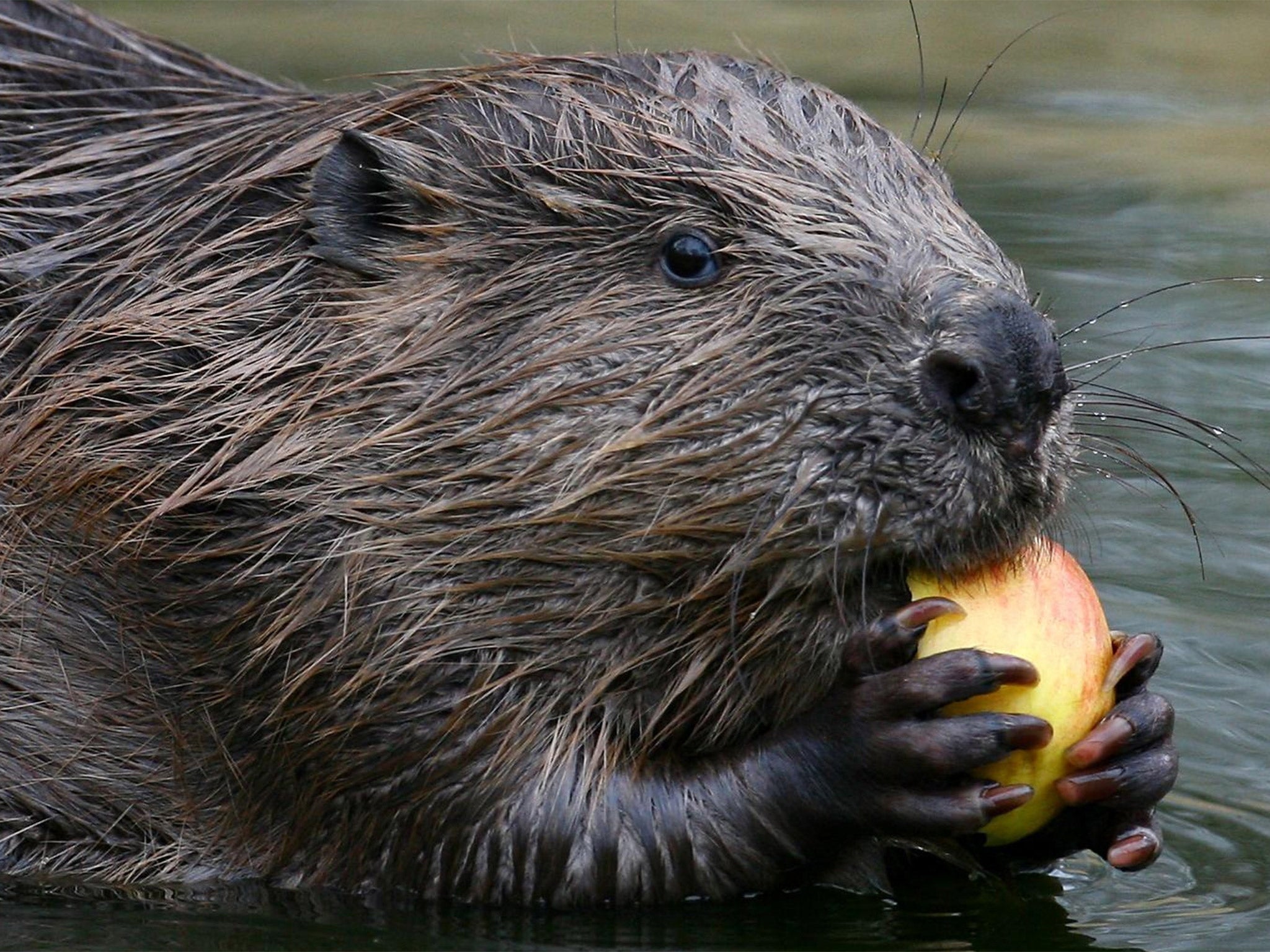New evidence questions Government plan to trap wild beavers
Family of beavers spotted on River Otter in Devon

Conservationists have called on the Government to halt its plans to capture England’s only wild beaver population following the publication of new documents which show there is only a small risk that the animals carry disease.
The documents from the Department for Environment, Food and Rural Affairs (Defra) were released after a Freedom of Information request from Friends of the Earth. They show that Defra faces “legal, policy and financial issues” over its plan to trap, test and rehome the animals in captivity.
Locals spotted the family of three beavers on the River Otter in Devon last February, in what they described as the first wild beaver sighting in England for hundreds of years. They were joined in this summer by three beaver kits.
However Defra is planning to trap the animals, arguing that they are a “non-native species” which died out 500 years ago, and that they could be carrying a rare parasite found in the European beaver, called Echinococcus Multilocularis (EM). The UK is currently free of EM, which can migrate into humans, where it can be fatal and cost up to £100,000 per patient to treat.
However, new documents show that Public Health England has told Defra it is “not convinced that the three Devon beavers necessarily represent a significant increase in the overall risk” to human health.
Emails between Defra officials, Natural England the Animal Health and Veterinary Laboratories Agency (AHVLA) also show that various legal and practical concerns have been raised about the controversial plan to trap and rehome the animals, an operation which could cost as much as £40,000.
It is unclear where the beavers on the River Otter originate from, but beavers born in the wild in the UK are not thought to carry EM, while guidance from Natural England shows that the risk from EM is restricted to beavers caught in the wild in Europe, where the disease is prevalent.
According to Friends of the Earth campaigner Alasdair Cameron, the documents “undermine the case for capture on the grounds of EM”.
He told The Independent: “It is fairly clear from these documents that Defra itself is not clear of its position. My main comment is that Public Health England has said they don’t believe reintroducing the beavers has major EM implications, and instead it highlights the pet trade as being a much bigger threat as far as EM is concerned.”
He added: “It is also clear that Defra admits that beavers born in the wild – and I’m thinking about the three young kits born in July – cannot carry this disease. So any capture of them makes no sense.”
Friends of the Earth is calling for Defra to halt is plans and take a “sensible approach” which sees the adult animals tested but returned to the River Otter.
A spokesperson for Defra said, “The beavers may carry a disease which could pose a risk to human health – although this risk is low, we cannot ignore it. That is why we are taking precautionary action to test the beavers.
“Their presence could also have a negative impact on the surrounding environment and wildlife.
“Once captured and tested, we intend to rehome them in a suitable location, and all decisions will be made with the welfare of the beavers in mind.”
Join our commenting forum
Join thought-provoking conversations, follow other Independent readers and see their replies
Comments
Bookmark popover
Removed from bookmarks